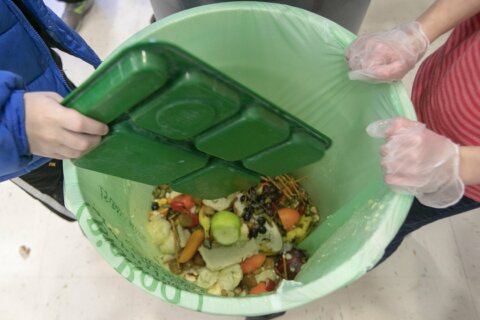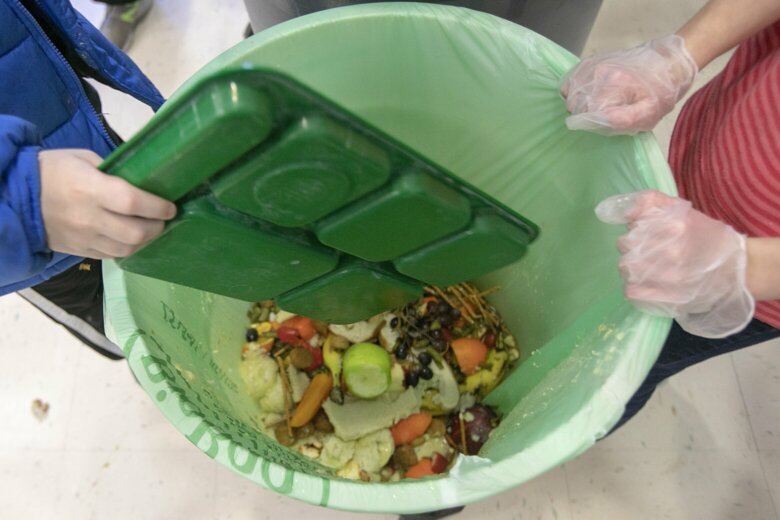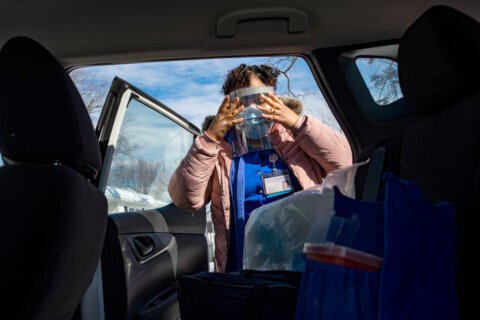
What you may see as garbage, Arlington County, Virginia, sees as fodder for composting.
The county’s been prepping residential curbside trash customers by distributing a 2-gallon scrap food container, known as a “caddy,” along with compostable bags.
Residents are being asked to put those in their kitchens and fill them with food scraps, ranging from fruits and vegetables to meats and dairy, with peels and bones included.
The bags of food scraps then go into the green organic yard waste bins for composting instead of incineration. The new program starts on Monday.
What goes into the caddy — and then into the organics bin along with yard trimmings? The county said a good rule of thumb is “if it grows, it goes.”
Erik Grabowsky, chief of Arlington’s Solid Waste Bureau of the Department of Environmental Services, told an online forum that the process involves three simple steps.
“You’ll collect the food scraps in your food caddy in your kitchen, you’re gonna move that material in a compostable bag to your green organics cart and then on trash day you’ll move your organics cart to the curb for collection by the trash and organics collection crews,” Grabowsky said.
A guide for collecting food scraps for composting is available on Arlington County’s website.
The list of compostable items includes:
- Meat, fish, poultry, bones
- Dairy products (yogurt, cheese)
- Vegetable and fruit trimmings
- Eggshells and coffee grounds
- Table scraps
- Nuts, seeds, pits
- Bread, pasta, rice
- Paper towels and napkins
- Paper coffee filters
- Greasy pizza boxes
The effort supports Arlington County’s zero waste goal of diverting up to 90% of its waste from incineration by 2038. Internal waste audits show food scraps make up over 20% of the residential waste stream in Arlington.
“The collected material will be taken to the Freestate Farms Advanced Composting Facility, in Prince William County,” Grabowsky said. “The county will bring some of the finished compost back to the county for use by residents, our community gardens and our parks departments.”
Arlington County said it is behind what the EPA said are some of the benefits of reducing wasted food — including reducing methane emissions, conserving energy and preventing pollution.
The county said it hopes to increase awareness of the role those in Arlington have in reducing food waste, increasing the county’s recycling rate and promoting healthy soils.
The annual cost to add food scraps collection will be an increase of less than $12 per year to the Household Solid Waste Rate (HSWR) to cover the costs of collection and processing of the organic materials.
This service is only available to residential curbside trash customers.
Residents of multifamily housing can drop their food scraps at the Earth Products Recycling Yard at the Arlington County Trades Center in Shirlington or at the Columbia Pike Farmers Market on Sundays.









